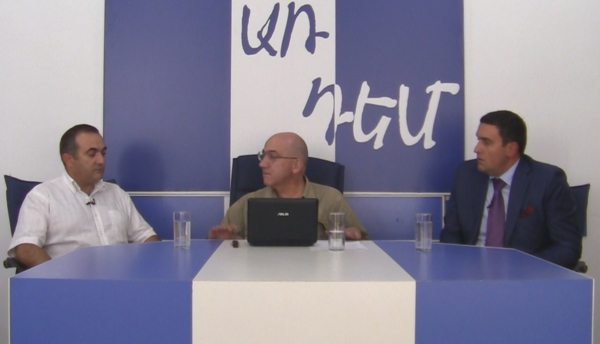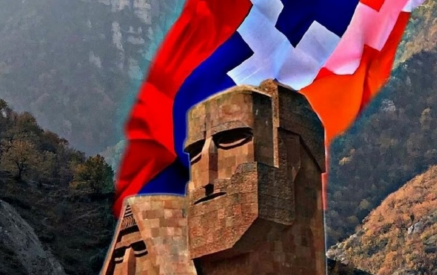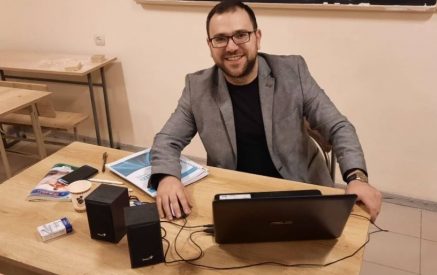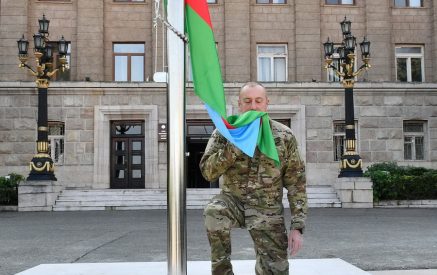The theme of “Aravot” online “Face to Face” series of talk-show is discussed between the National Assembly MP, Tevan Poghosyan, and Director of Center for European Studies at the Yerevan State University, Artur Ghazinyan.
Aram Abrahamyan – 23 years ago, Artsakh’s independence was proclaimed on September 2, but up to now, there are disputes over whether “the NKR project” was right, or the 1990 Supreme Council decision on reunion should be implemented.
Tevan Poghosyan – If there is a decision, for which a referendum was held and the people voted in favor of it, then the project, apparently, is the righteous one. Let’s not forget that the independence was proclaimed on September 2, but along with it we had the December 10 referendum, where about 99 percent of the population of NKR voted in favor of independence, thus, we must respect this decision, since we are always talking that we are in favor of democracy. In 1991, a tactical decision was made, and we should understand that when Azerbaijan declared its independence, the NKR government took advantage of their right attributed to them the then Soviet Constitution: to make a separate decision for the destiny of autonomous reunion and this decision was probably the right thing at given moment. And after that, respecting the opinion of the people, try to really be guided by this decision and go forward.
A. A. – The 1990 Supreme Council decision and the 1991 declaration, afterwards the referendum, which is right?
Read also
Artur Ghazinyan – In this regard, I will agree. Manifestation of democracy, naturally, is the decision adopted by referendum. Referendum shall be considered as a mean and a tool of an absolute expression of the will of the people. The psychological part of the issue should also be understood. The fight initially was waged for NKR and reunion to Armenia, wasn’t it? The movement began for this purpose, and we remember its slogan: reunion. In Karabakh and Armenia, people came out to the streets and were demanding from the Soviet government that these two Armenian territories be united. But, on the other hand, if we try to understand that the Soviet Union was already collapsing, and the process of recognition of the states had already been started, then it is clear that the problem is already coming out of the Soviet Union internal legal regulations and was entering the international law. Here, it would be easier to implement the principle of self-determination rather than to amend the contoured borders, trying to reach unification of these two entities. Accordingly, a decision was made also with regard to strategy: to implement international law on the right to self-determination of nations.
A. A. – Did we exercise this right?
T. P. – It is exercised as of now, because you have to realize that there is also recognition day-by-day, perhaps not by states. Today, we have recognition by five different U.S. states, we also have recognition by different autonomous status, connection by various international structure to the independence of NKR… we go to this solution step by step. Everyone begins treating Karabakh as a single unit.
A. A. – California has recognized, in a number of other U.S. states have recognized, several international organizations have de facto recognized, Armenia does not recognize. Why?
A. Gh. – Armenia’s recognition of Karabakh would mean end to all kinds of talks, would mean getting out of the negotiation process, and would mean rejecting the Minsk Group. The international community has decided to conduct negotiations for the final and peaceful settlement of the conflict. Therefore, adhering to the obtained agreements, Armenia does not find it appropriate to recognize Karabakh’s independence, because the subject of negotiations by itself is also the implementation of the right to self- determination by the people of Karabakh.
The complete discussion
Prepared by ARAM ABRAHAMYAN
“Face to Face” talk show series are released by the Open Society Foundations- Armenia. The views and analyzes found in this broadcast express the opinions of the participants, and are not approved by the Open Society Foundations-Armenia, or its Board. This broadcast is made available thanks to comprehensive financial support by the Open Society Foundations-Armenia, under the mass media support program, grant No 18624.






















































